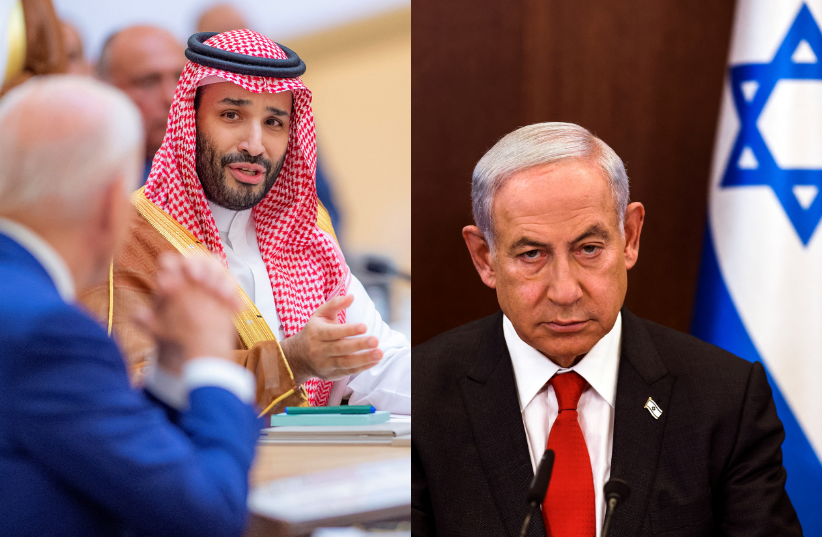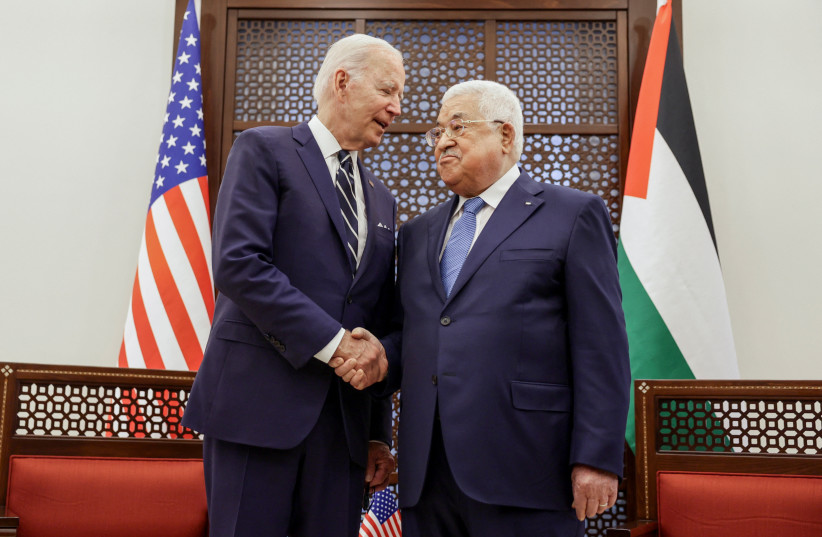Saudi Arabia withdrew from normalization talks due to Benjamin Netanyahu’s “extremist” government, as per the unconfirmed Elaph report.
By JERUSALEM POST STAFF Published: SEPTEMBER 17, 2023 10:54
Updated: SEPTEMBER 17, 2023 12:48

Saudi Arabia has informed the Biden administration of its decision to halt all talks of normalizing ties with Israel on Sunday, the Arab news outlet Elaph cited an Israeli official in the Prime Minister’s Office as saying.
According to the unconfirmed report, Riyadh issued a message through the US, explaining that the “extremist” nature of Israel’s right-wing government led by Prime Minister Benjamin Netanyahu is “torpedoing any possibility of rapprochement with the Palestinians, and thus with the Saudis,” as per Aleph.
Furthermore, the report specified that Saudi Arabia was put off from a potential peace deal due to Netanyahu’s “acceptance” of demands made by the likes of National Security Minister Itamar Ben-Gvir and Finance Minister Bezalel Smotrich, who the Saudis see as “extreme right.”
Antony Blinken: Palestinian issue is critical for peace deal
Last week, US Secretary of State Antony Blinken said that Saudi Arabia has let the Biden administration know that resolving Palestinian issues is critical for any normalization deal with Israel.
“It is also clear from what we hear from the Saudis that if this process is to move forward, the Palestinian piece is going to be very important too,” he said on Wednesday in an interview with the podcast Pod Save the World.
US President Joe Biden shakes hands with Palestinian President Mahmoud Abbas at the Presidential Compound, in Bethlehem, in the West Bank July 15, 2022 (credit: REUTERS/EVELYN HOCKSTEIN)
Israeli normalization with the Arab world and “any of the efforts that are going on to improve relations between Israel and its neighbors can not be a substitute for Israel and the Palestinians resolving their differences and having a much better future for Palestinians,” Blinken said.
“In our judgment that needs to involve a two-state solution” to the Israeli-Palestinian conflict, he explained.
Last month, Foreign Minister Eli Cohen stressed in an interview with Elaph that the “Palestinian issue is not an obstacle to peace.”
Content retrieved from: https://www.jpost.com/middle-east/article-759423?fbclid=IwAR2I8q9gxS-OJpH1yLVNMB1EszDjGq5xeFy1rBwzOpxgFXwhiMojvlNfNoo.
